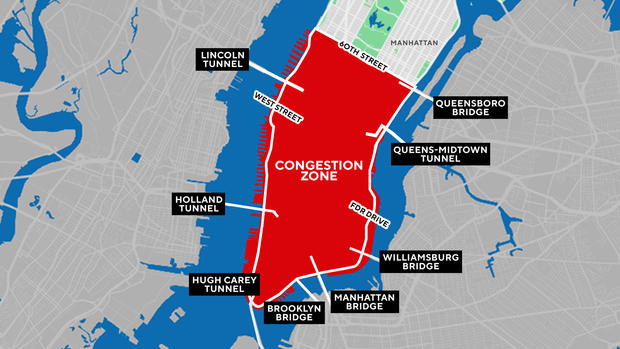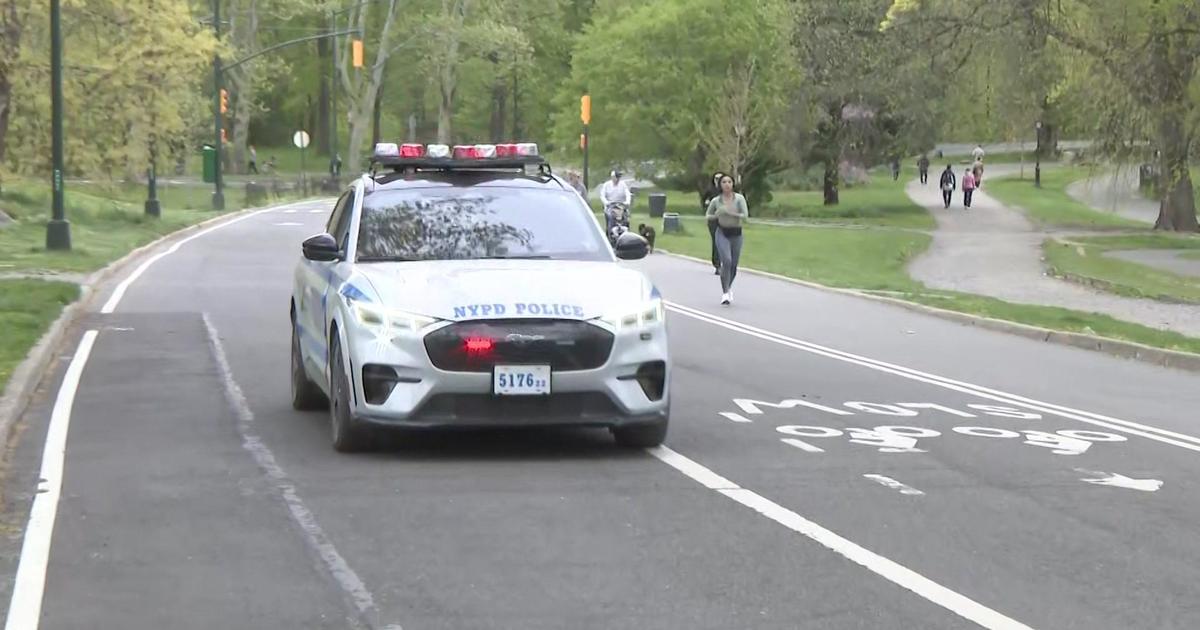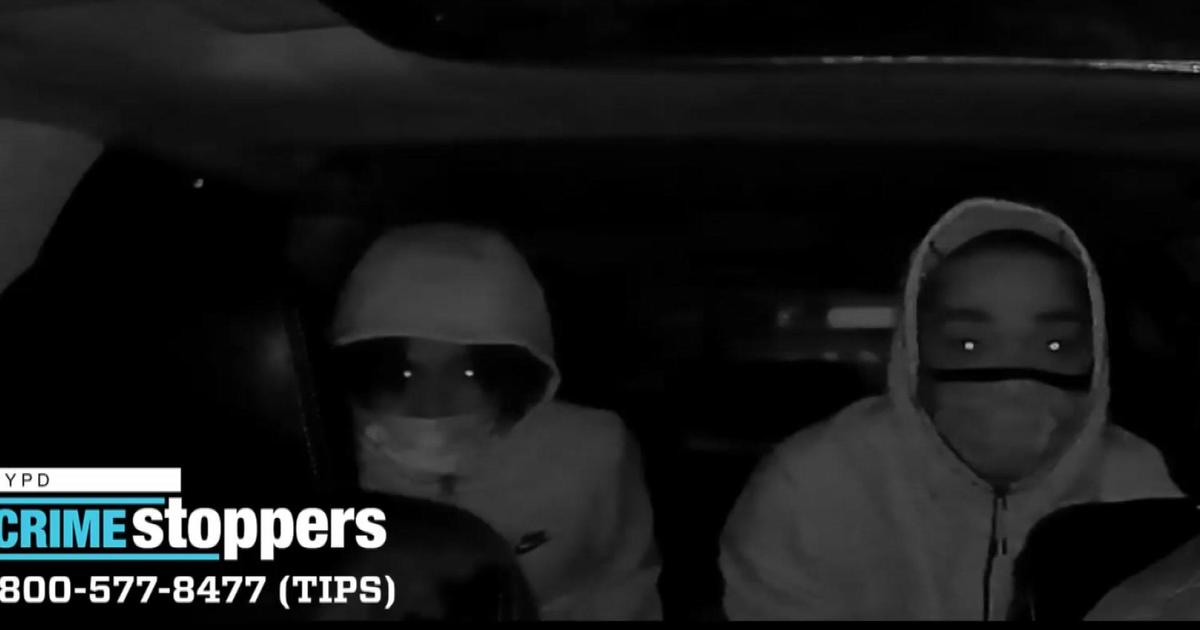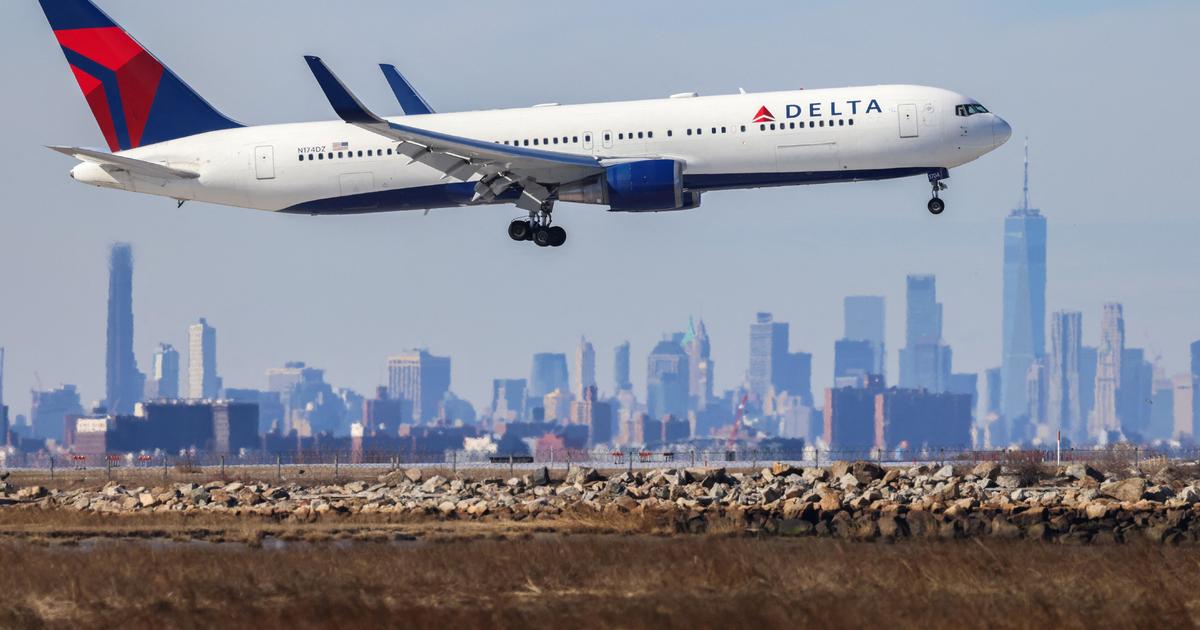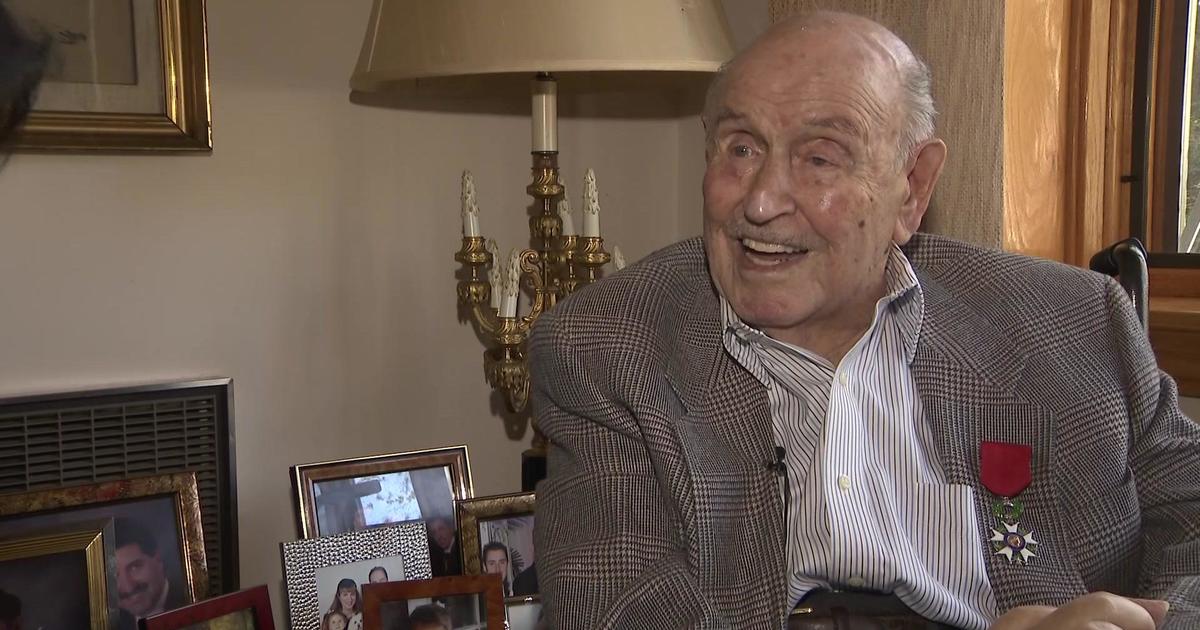Congestion pricing in NYC: Map, questions and answers
NEW YORK - We're getting a much clearer idea of what congestion pricing is going to cost drivers when it kicks in.
CBS New York's Marcia Kramer obtained a draft report that's recommending a $15 toll from 5 a.m.-9 p.m. Monday-Friday and 9 a.m. - 9 p.m. on weekends for drivers entering the Central Business District below 60th Street.
Kramer answered some of the top questions about congestion pricing live with Chris Wragge and Mary Calvi Thursday morning on WCBS-TV and CBS News New York.
Map of the congestion pricing zone
What does congestion pricing mean for New Jersey drivers?
Wragge: New Jersey drivers have been worried for a long time. They're also find out there's also no toll forgiveness for George Washington Bridge drivers especially. So what is the reaction coming in from New Jersey from people like Rep. Josh Gottheimer and such?
Kramer: I want to tell you something - they're furious. Josh Gottheimer is saying that it's totally unfair because people who live in New Jersey, in Bergen County, who have to take the George Washington Bridge are still going to be charged the full freight, unlike people who are going to be taking the Lincoln and Holland Tunnels. So he says what it's going to do is it's going to add more congestion in New Jersey communities in Bergen County. And in fact, he and the Fort Lee Mayor Mark Sokolich have already filed one of two suits that seeks to stop the MTA from doing this because, they say, it's going to be really bad for the health of people who live in New Jersey.
What does congestion pricing mean for people who live in the outer boroughs of NYC?
Kramer: Well, the problem for people in the outer boroughs is that there are transit deserts where there's not a lot of options - you might have to take, like, three buses and trains. So people drive. And now they're going to find that, if they take the Queens Midtown Tunnel or the Brooklyn Battery Tunnel, they're going to have to pay, and they're only going to get a $5 credit if they come in during the day. So they're going to find that out it's going to be really much more costly for them to get to work. The real question now is going to be whether this is going to put pressure on employers to reimburse their people, people who work for them, to pay for the extra tolls.
What about exemptions for first responders, teachers and others?
Kramer: It's not only firefighters. It's teachers. It's police officers - all of the precincts below 60th Street. And not only that, judges. All of the courts in Manhattan are in the congestion zone. And, dare I say it, City Council staffers and City Council members. City Hall is in the congestion zone. So, they're going to have to pay as well. Let me tell you, there's going to be a lot of angry people today, because during the earlier hearings, over 100 different groups said they should get exemptions, including people who are going to go the hospitals in the congestion zones, people with medical disabilities. And the panel turned a deaf ear to all of those people, saying they have other options, especially if you have a medical illness - you can get reimbursement from Medicaid and Medicaid Advantage.
What's the status of the legal challenges against congestion pricing?
Kramer: Right now, there's no resolution. There's two suits - one by New Jersey Gov. Phil Murphy, who is livid about this - and the other one, as I said, from Josh Gottheimer and the mayor of Fort Lee, N.J. I know that about a few weeks ago, the head of the MTA, Janno Lieber, went to New Jersey as part of the Murphy suit to try to come up with some kind of a resolution. There was no resolution, and it continues.
Now, the reason why these suits are important, is because it can delay implementation. The MTA was hoping to start charging in May, but if these suits are not resolved, they're not going to be able to start the tolling program.
What is the MTA's explanation for continuing to charge and charge commuters?
Kramer: The truth is this - that the MTA needs to do a lot of capital improvements. The system is over 100 years old. The subways are really old. The kinds of things they plan to spend the money on - you see, if you raise $1 billion a year, you can bond it out and get $15 billion a year.
What they want to do is build, for example, a new light rail line called the BQX that will bring more people from Brooklyn and Queens into the city. But the real important thing is to redo the subway signals. Now, you say, what does that mean? Well, it's really important. Because if you have a good signal system, you can run trains closer together, which means you can run more trains during rush hour and others so that the trains are actually less crowded because they can run closer together. And the signals haven't been updated, and that's a really big cost for the MTA.
But there are other projects too: More buses, electrifying the bus system. And also they want to do an extension of the Second Avenue subway that not only goes to 125th Street, but then turns west and goes all the way to the West Side. So there are a lot of projects that will be beneficial to people who take mass transit.
The whole goal here is to reduce the amount of congestion in New York City in the Central Business District. You and I know that we go through the city to get someplace, it takes forever sometimes. And what they're hoping is that because they're going to charge during the day, but at night, they're only going to charge, like, $3.50 for a car - they're hoping it's going to change traffic patterns. Especially for trucks making deliveries, because they're hoping the trucks, because they'll pay so much less, will come in at night, and reduce the street congestion during the day.
When will congestion pricing start? What's the next step?
Kramer: Well, besides people screaming and yelling and saying "Don't do this," there's going to be, they have to have public hearings. And so there'll be a series of public hearings. And I guarantee you, there's about 100 groups that have said they want to get some kind of discount. So there's going to be people who are saying give us a discount, they'll have public hearings.
These numbers are not absolutely final. The MTA board can tweak the numbers based on the hearings, and then they would have to approve them, probably some time in January. And the hope is that, if it's approved and if the court challenges are resolved, that they can start charging in May. Right now, it doesn't look that good, because there's a lot of challenges. There's a lot to be worked out. And it doesn't look like New Jersey officials are going to lie down on this, so it's going to take a while.
